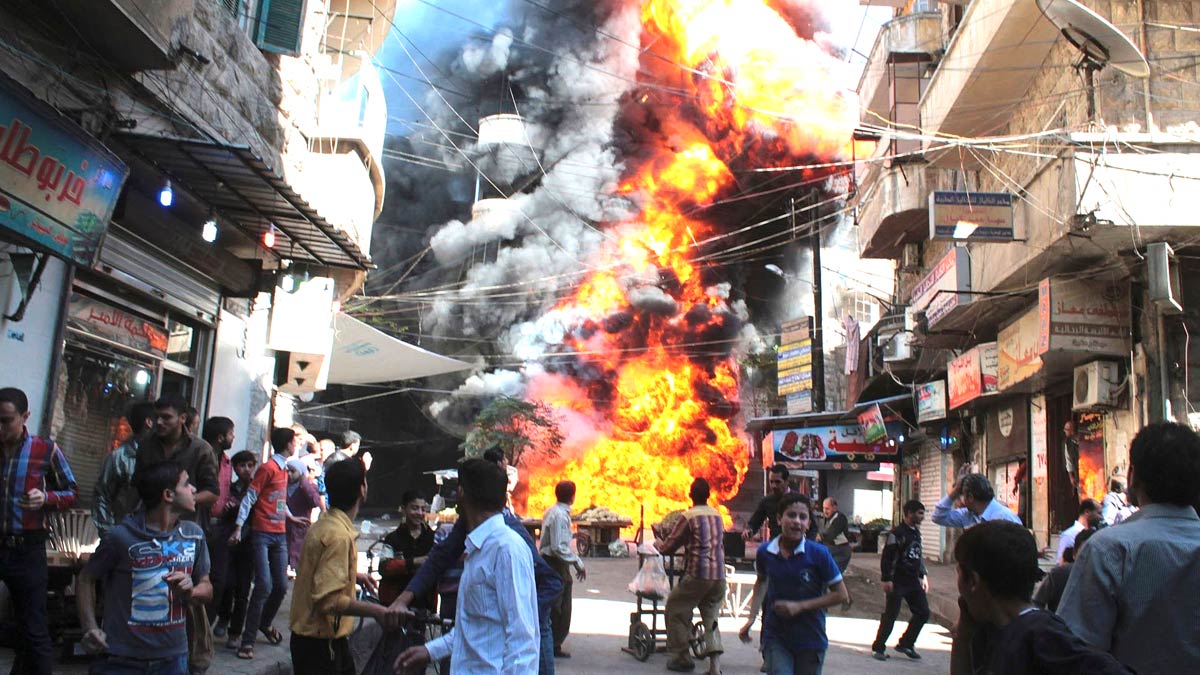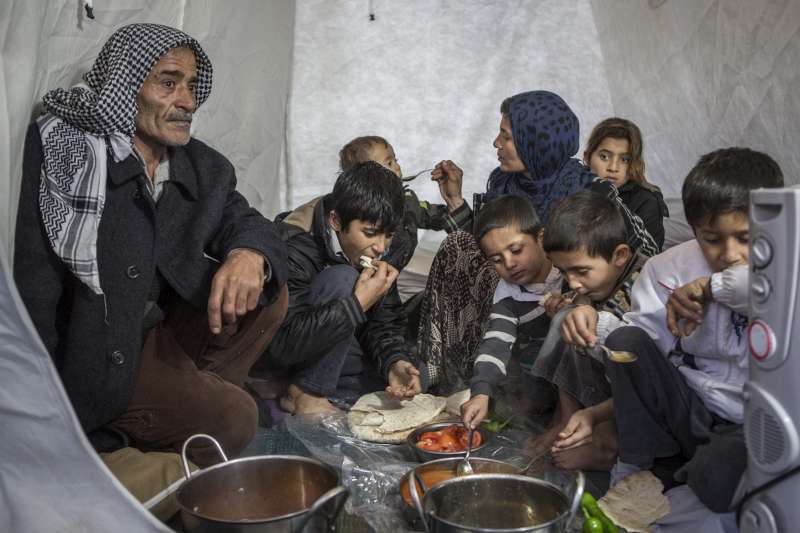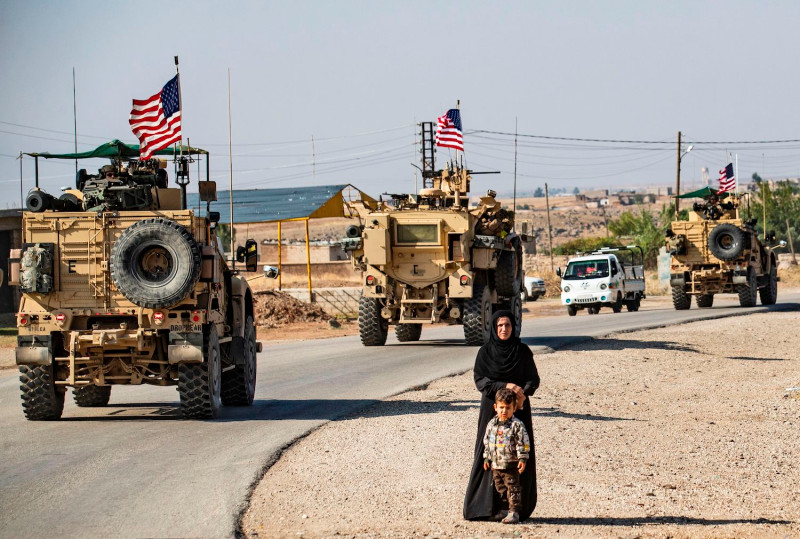The complexity of the ongoing Syrian conflict has sparked different perspectives on its status. Despite having its roots in national disputes, there are numerous foreign actors involved in the conflict – such as the United States and Russia. So, does the military support from these states amount to direct participation in a Civil War, or has the conflict escalated into a Proxy War?
Terminology Check
To determine whether the conflict in Syria is a Civil War, it is important to explicate the terms. As defined by the Merriam-Webster Dictionary, a Civil War is “a war between opposing groups of citizens of the same country.” However, other prominent conflicts such as the Spanish Civil War carry that name despite having the participation and support of other states.
On the other hand, a proxy-war is considered an “armed conflict between two states or non-state actors which act on the instigation or on behalf of other parties that are not directly involved in the hostilities” in which“ there must be a direct, long-term relationship between the nations involved.”

How did the conflict in Syria start?
Severe drought plagued Syria from 2007-10, causing as many as 1.5 million people to migrate from the countryside into cities, exacerbating poverty and social unrest. With President Bashar al-Assad unable to exercise the country’s sovereignty, a series of major popular protests started to take place in early 2011’s. Progressing to a violent armed revolt and the formation of the Free Syrian Army later that year, a civil war officially began.
However, now having lasted for longer than World War II, this war in Syria has gone beyond its borders. It has unlocked the cravings of Syria’s closest neighbors – Iran, Israel, Turkey – and those from further away. Russia saw this as an opportunity to establish a base in the Middle East, causing the United States to react.
With Iraq, Iran, Russia, and even Lebanon’s terrorist group Hezbollah showing support for Bashar al-Assad’s government, and the United States, Turkey, Qatar, Saudi Arabia, and Israel supporting local rebels, this conflict has escalated from a response to the political needs of the Syrian people to fulfilling the wants of these nations.

Rather than directly participating to work towards a resolution of the conflict, these states are exploiting the war in Syria to fill their own agendas. The US was leading an international coalition bombing ISIS targets since 2014, and Russia established a renewed Middle East foothold after watching for years as the United States called shots in the region. As noted by British Foreign Secretary Philip Hammond, “There is one man on this planet who can end the civil war in Syria by making a phone call, and that’s Mr. Putin.”
In February 2012, a decision by both Moscow and Beijing to veto a UN Security Council resolution condemning the violence in Syria and calling for an immediate end to the violence sparked controversy. It is clear that these nations, especially Russia and the United States, have had a “direct, long-term relationship” with the conflict in Syria. Their participation goes beyond simple military support, and it appears that the continuation of this conflict is in their interest.
As noted by writer Uri Friedman, “If the coming defeat of ISIS and rebel forces in Syria was supposed to bring an end to the seven-year conflict there, no one told Iran, Israel, Turkey, Russia, or the United States.” These states are so sold in using the lack of sovereignty and exposition of Syria for their personal gains that the conflict is no longer being driven by “ opposing groups of citizens of the same country” but rather the foreign states themselves.

Who pays the price
While these foreign nations have high stakes in the conflict in Syria, the Syrian people are the ones who are paying the price for this settling of records. As of February 2018, the UN refugee agency (UNHCR) had registered over 5.5 million refugees from Syria and estimated that there are over 6.5 million internally displaced persons (IDP) within Syria’s borders. Lebanon, Turkey, and Jordan are hosting most of the Syrian refugees, many of whom attempt to journey onwards to Europe in search of better conditions.
When Europe opened its borders, it did not anticipate over a million migrants – mostly refugees from Syria – in one year alone, as happened in 2015. Thousands have died trying to cross by sea in search of peaceful land, posing a moral challenge for the continent, and giving rise to both empathy and xenophobia.
The conflict in Syria has also indirectly given space for the growth of one of the world’s biggest terrorist groups: ISIS. The expansion went largely unchecked by the Syrian government, occupied combating its opposition. The group has waged terror attacks from France to Yemen and has established a beachhead in northern Libya that could outlast its so-called “caliphate” in Syria and Iraq. Thousands of young men and women from Europe – not all of Muslim origin – have joined the group.
Whether it is by hosting refugees or being victims of terrorist actions, it is safe to say that most of Syria’s neighbors have felt the consequences of this unnecessarily stretched out conflict. It can be argued that the direct and political participation of the above-mentioned states in this conflict is subjective. However the impact this war has had on countless other nations, consequently causing these to take a stance in the conflict, illustrates how the situation can no longer be called a Civil War.
Importance of getting the right label for the Syrian conflict
One might overlook with indifference the significance of labeling in politics. Calling a conflict like the one in Syria a civil war or a proxy war won’t change the fact that this ongoing conflict is both an unjust and unjustified bloodshed.
Nevertheless, labeling can be viewed as an attempt to clarify the relation between power and accountability. Power in politics can be described as the ability to influence other political entities. When a conflict is labeled as a civil war, accountability is drawn to the state itself, leading to a perception that the cause is solely internal and that the people of this state have an active participation in said conflict.
Labeling the Syrian conflict as a proxy war draws attention to another aspect: Accountability is no longer internal but external. Other actors are involved and they are exploiting the situation for their own good.
This perception leads one to see that the cause is no longer only from within – the Syrian state – but also from without – Russia, the United States, Iran, Turkey. These countries must prioritize the value of life over their own political interests in order for this conflict to come to an end.
In the featured image: A convoy of U.S. armored vehicles patrols the northeastern Syrian town of Qahtaniyah at the border with Turkey on Oct. 31. Credit: Foreign Policy
Editor’s Note: The opinions expressed here by Impakter.com contributors are their own, not those of Impakter.com










